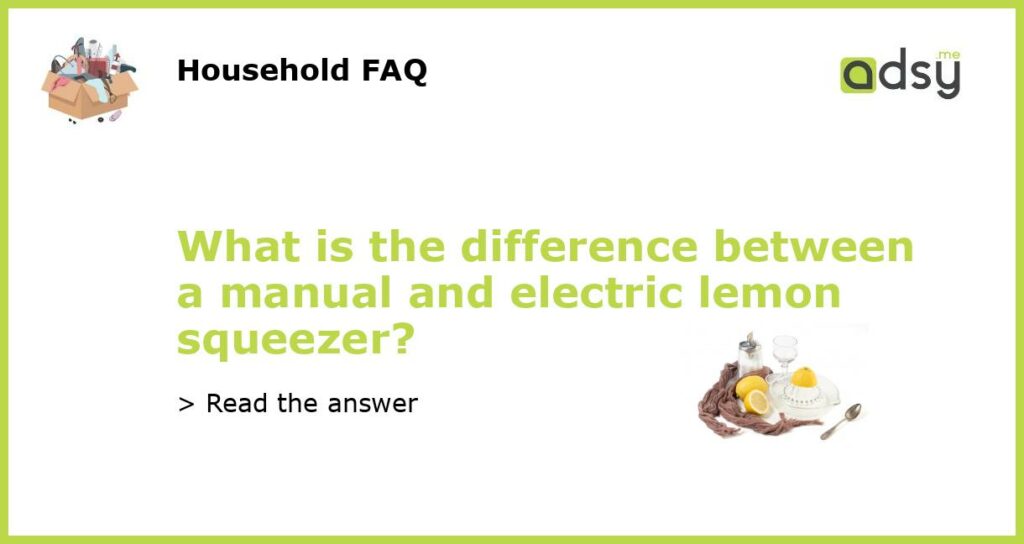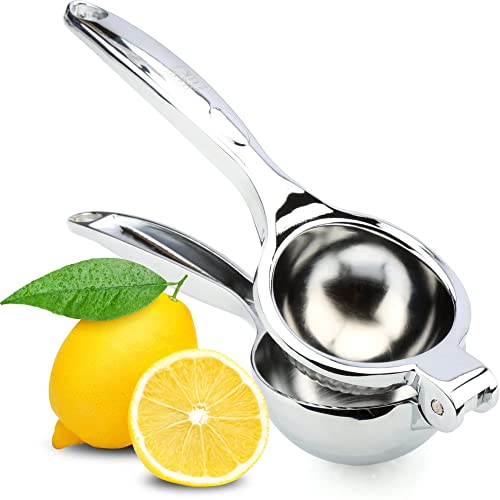The Manual vs Electric Lemon Squeezer: Which One to Choose?
Lemon squeezers are essential kitchen tools for people who love fresh juice, cocktails, or adding a spritz of tang to their dishes. They come in different shapes, sizes, and designs, including manual and electric models. Manual squeezers require you to apply pressure on the fruit with your hands, while electric models use a motor to do the job. In this article, we explore the differences between the two and help you decide which one is the best for you.
The Basics of Manual Lemon Squeezers
Manual lemon squeezers are simple and affordable tools that consist of two handles and a bowl-shaped container with ridges. To use them, you simply cut a lemon in half, place it face down in the container, and squeeze the handles together. The ridges at the bottom crush the fruit, forcing the juice out and straining out the seeds and pulp.
Manual squeezers are easy to use and clean, and they do not require any electricity or batteries. They are also available in different sizes and materials, such as plastic, aluminum, or stainless steel. However, they require some effort to use, and they may not be suitable for people with arthritis, carpal tunnel syndrome, or grip problems.
The Pros and Cons of Electric Lemon Squeezers
Electric lemon squeezers are powered devices that use electric motors to crush and squeeze the fruit. They are usually made of plastic and metal and come with adjustable reamers to fit different sizes of citrus fruits. They may also have pulp and seed filters, drip-stop spouts, and dishwasher-safe parts.
The advantages of electric squeezers are their speed, convenience, and consistency. They can squeeze dozens of lemons in minutes without straining your hand muscles. They also extract the maximum amount of juice from the fruit, leaving hardly any waste. However, they are more complex and costly than manual squeezers, and they require a power source and some maintenance.
Factors to Consider When Choosing a Lemon Squeezer
Both manual and electric lemon squeezers have their own benefits and limitations, and the right choice depends on your needs, preferences, and budget. Here are some factors to consider when choosing a lemon squeezer:
- Frequency of use: If you squeeze lemons occasionally or for a small family, a manual squeezer may suffice. If you squeeze lemons daily or for a large crowd, an electric squeezer may be more efficient.
- Budget: Manual squeezers are generally cheaper than electric ones, particularly if you opt for a basic model. However, some high-end manual squeezers can be more expensive than low-end electric ones.
- Space and storage: Manual squeezers are usually smaller and easier to store than electric squeezers, which may require more counter space or cabinets.
- Ease of use: If you have weak hands, joint pain, or dexterity issues, an electric squeezer may be more comfortable to use. If you prefer a hands-on approach and like to feel the fruit, a manual squeezer may be more satisfying.
- Cleaning and maintenance: Manual squeezers are generally easier to clean and maintain than electric ones, which may have more parts to disassemble, wash, and dry.
The Final Verdict: Which One to Choose?
In summary, manual and electric lemon squeezers each have their own strengths and weaknesses, and the best choice depends on your individual circumstances. If you want a simple, economical, and low-maintenance tool for occasional use, a manual squeezer may be perfect for you. If you want a fast, efficient, and hassle-free tool for frequent use, an electric squeezer may be worth the investment.
However, if you are still unsure which squeezer to choose or want to compare different models and brands, you can read lemon squeezer reviews and ratings on Amazon, Bed Bath and Beyond, or other online retailers. You can also ask for recommendations from friends, family, or kitchen experts who have experience with lemon squeezers. Happy squeezing!






